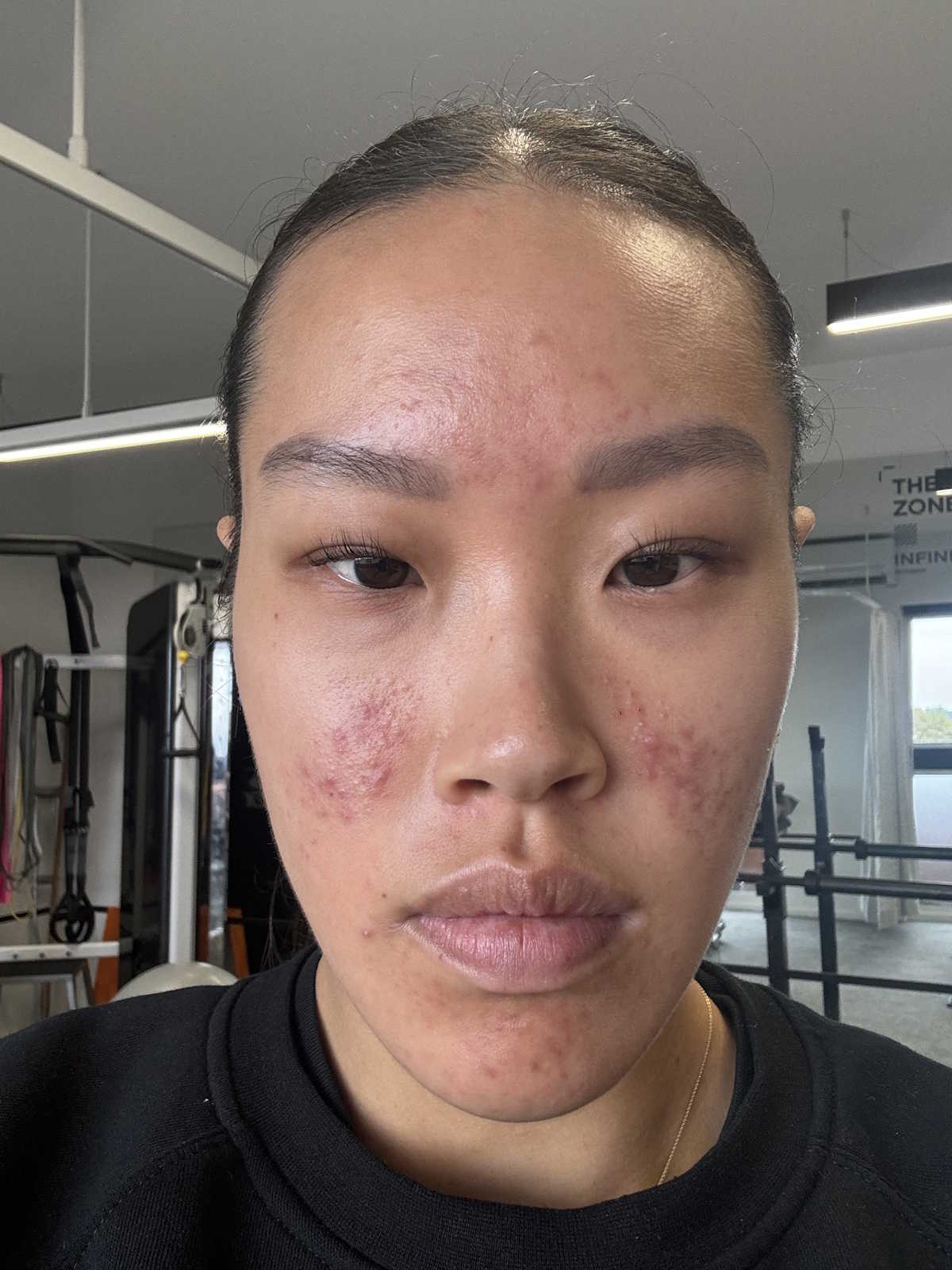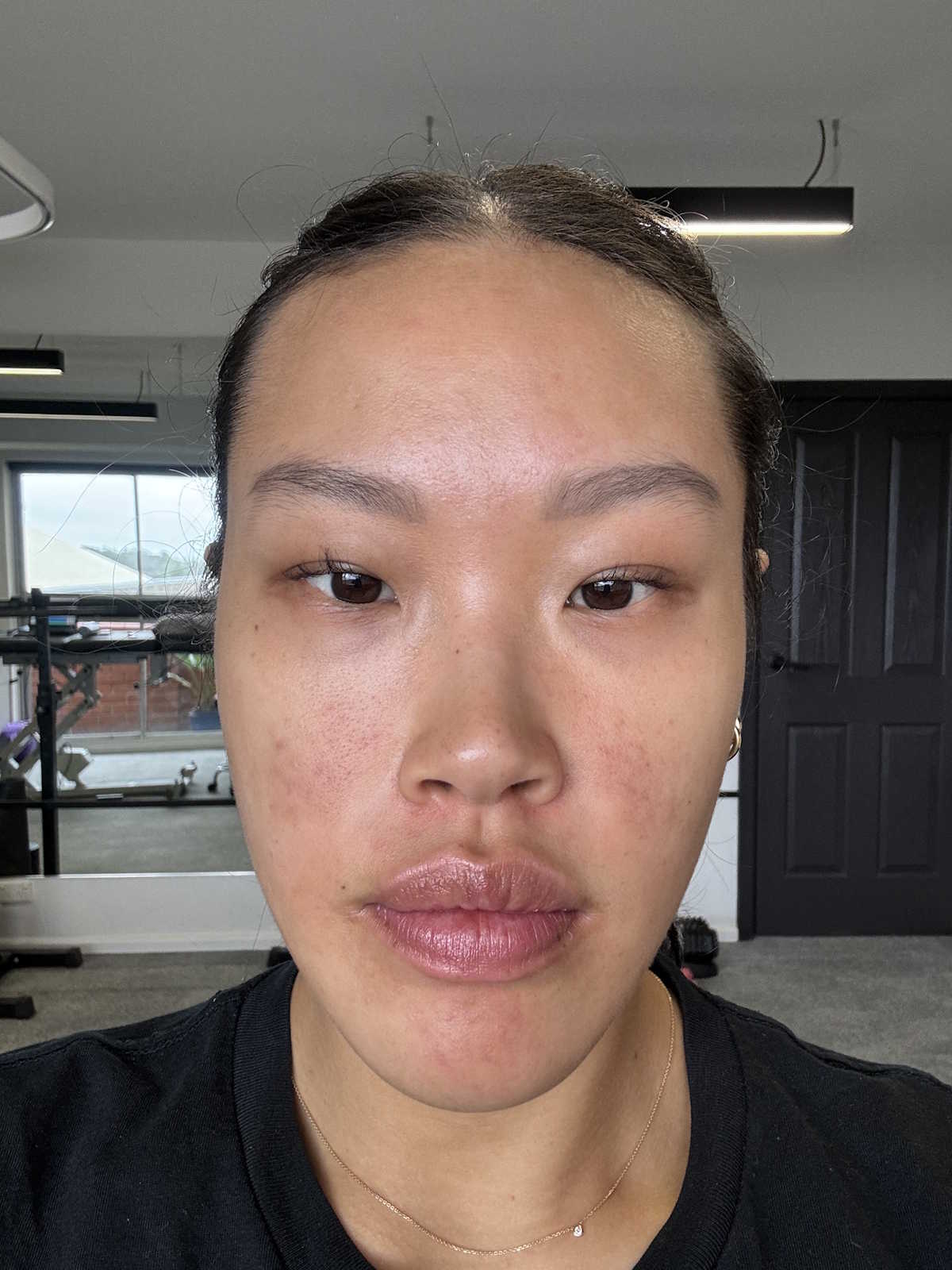© AMPERNA® 2024 ABN: 29 633 509 449
This site is protected by reCAPTCHA and the Google Privacy Policy and Terms of Service apply.


It’s common to feel self-conscious when breakouts appear, especially on the face. Finding acne skincare that works for breakout-prone or congested skin can feel overwhelming.
AMPERNA® developed its acne skincare range to support people with skin that is prone to acne. Each product is formulated to be gentle on sensitive skin, help maintain a balanced skin barrier, and leave your complexion feeling calm and refreshed.
All AMPERNA® products are tested on real people with real skin concerns, including acne-prone skin, so you can feel confident making them part of your everyday routine.


Betty Zhang
"I've been using AMPERNA® for 4 months, and I'm amazed at the results! I've been using their Acne Plus Combo and it has made a huge difference to my skin.
I started with skin that felt compromised and reactive, with lots of visible congestion and uneven texture, but now my skin looks much clearer and smoother. There's still a bit of uneven tone, which is continuing to improve, and the overall texture of my skin has changed dramatically.
The routine is incredibly simple and easy to follow, which made it easier to stay consistent. I just focused on being patient and letting the products do their work.
It took time, but the results were definitely worth the wait. I’m so happy with how my skin looks now, much more even, smoother, and visibly refreshed!"
*Photos are unedited and reflect personal experience. Results may vary.


Natasha Brown
"I’m so glad I discovered AMPERNA®! Since incorporating the products into my daily routine, along with some lifestyle changes like reducing stress and eating more mindfully, I’ve noticed that my skin feels calmer and more balanced.
I use the Balance Cleanser, Hydrate Moisturiser, Repair Serum and occasionally the Exfoliate Lotion, and I love how gentle they all are. I’ve been recommending them to friends and family because they’ve made such a positive difference to my skincare experience. Thank you AMPERNA®!"
*Photos are unedited and reflect personal experience. Results may vary.


Leisa Sampson
"I've had a long journey with challenging skin. After trying various approaches, I was hesitant to start another round of treatment. I’d previously used [RESCUE] to support my skin when dealing with red looking skin, so I decided to see how the AMPERNA® range would fit into my routine for acne-prone skin.
After using the full range consistently for two months, my skin feels much calmer and more balanced. I've also noticed a visible improvement in overall tone and texture, and I feel more confident going makeup-free. I'm so glad I gave these products a chance, and I’m looking forward to seeing how my skin continues to respond."
*Photos are unedited and reflect personal experience. Results may vary.
Pimples, blackheads and whiteheads are hard enough to deal with, but life can really get difficult when severe acne strikes.
The most severe forms of acne present in the form of nodules, cysts and a condition know as acne conglobata.
Acne conglobate is a rare form of highly inflammatory acne where cysts and nodules begin to grow together deep below the skin. If left untreated, these severe types of acne can lead to life-long scarring. You can read more about this debilitating form of acne on the Healthline website.
It’s definitely a good idea to see a doctor or dermatologist if you think you are experiencing severe acne break-outs like those mentioned above.
While there are now many effective treatments for acne (thank goodness for that!), the same treatments will not work for everybody. You may need to try a few different things before you find something that works for you.
For those with mild acne, over the counter treatments and face washes could be of great help.
For those with more severe forms of acne, you may need to see a dermatologist.
They have a wide variety of treatments including:
- Topical treatments that can help to kill the bacteria and reduce the oil
- Medical treatments that work internally to help treat cysts and nodules (including antibiotics and isotrentinoin)
- Procedures such as laser and light therapies to reduce the bacteria or chemical peels to treat blackheads and pustules
For more information about these and other acne treatments, visit the American Academy of Dermatology website.
While there are now many effective treatments for acne (thank goodness for that!), the same treatments will not work for everybody. You may need to try a few different things before you find something that works for you.
For those with mild acne, over the counter treatments and face washes could be of great help.
For those with more severe forms of acne, you may need to see a dermatologist.
They have a wide variety of treatments including:
- Topical treatments that can help to kill the bacteria and reduce the oil
- Medical treatments that work internally to help treat cysts and nodules (including antibiotics and isotrentinoin)
- Procedures such as laser and light therapies to reduce the bacteria or chemical peels to treat blackheads and pustules
For more information about these and other acne treatments, visit the American Academy of Dermatology website.
If you’re the type of person who likes to try natural or home remedies before seeing a GP or dermatologist, there are many ingredients and treatments believed to be of help.
Some home/natural remedies are topical in nature, while others seek to work on gut health and heal the body from the inside.
Some of the ingredients believed to be of help include:
- Tea tree oil
- Apple cider vinegar
- Lemon juice
- Honey
- Baking soda
- Tomatoes
- Aloe vera
- Papaya
- Tumeric
- Cucumber
The Health Line website has a detailed article on powerful home remedies for acne that you may find useful.
The list starts with a recommendation to always cleanse gently, tone to restore PH balance, use healing masks and exfoliate regularly.
They recommend spot treatment with tea tree oil, using basil and essential oils to fight bacteria and adding a probiotic supplement to your diet.
AMPERNA® Ultra Gentle Soothing Cleanser is a light gel cleanser specifically formulated with breakout prone skin in mind. This ultra gentle formulation rinses clean without leaving an irritating residue or upsetting pH levels. It contains an infusion of sage and cucumber extracts to help cool, soothe and nourish skin.
Continued use of our AMPERNA® 10% Pro+ Resurfacing Lotion helps reduce the appearance of fine lines, wrinkles, dark circles and uneven skin tone.
When using glycolic acid and other AHAs, always wear sunscreen and appropriate sun protection. Chemical exfoliants can increase skin’s sensitivity to the sun.
As you know it is important to wear an SPF. Applying sunscreen will help protect your skin when you are out in the sun.
Our Pro+ Bio Soothing Day Mineral CC SPF15 is the first probiotic SPF moisturiser to market, full of great active skin loving ingredients, that has been specially formulated for even the most sensitive skins.
Our two retinols contain dicarboxylic salts, which support visibly clearer-looking skin by helping to refine texture and reduce the look of clogged or congested pores.
Retinols can increase skin’s sensitivity to the sun. Always wear sunscreen and appropriate sun protection while using this product.
Retinols are known for their ability to help refine skin texture and support a more even-looking skin tone. With continued use, they can help reduce the appearance of fine lines and promote a smoother, more radiant complexion.
Retinols can increase skin’s sensitivity to the sun. Always wear sunscreen and appropriate sun protection while using this product.
Introducing retinols into your skincare routine slowly is important to prevent irritation and sensitivity.